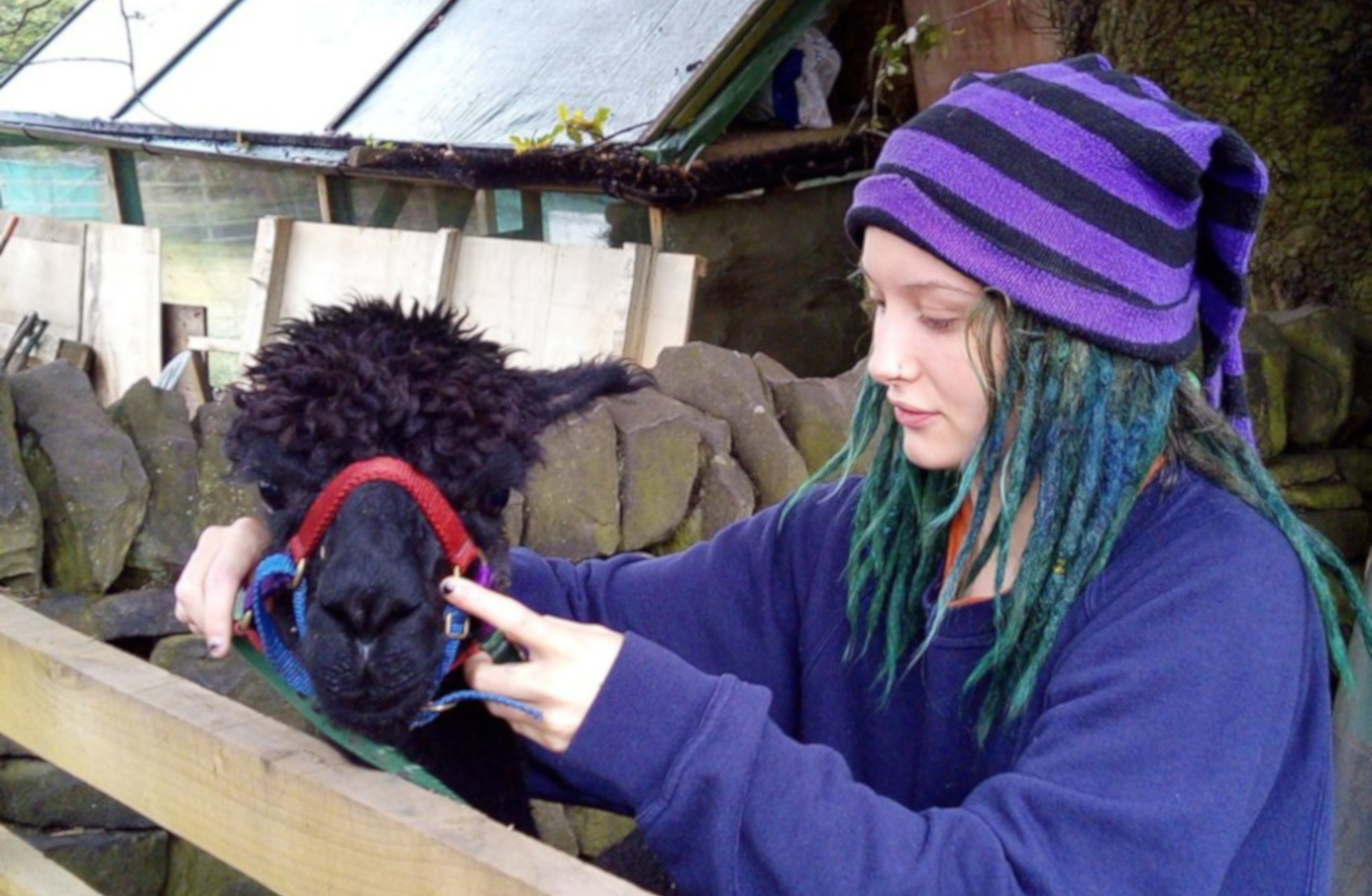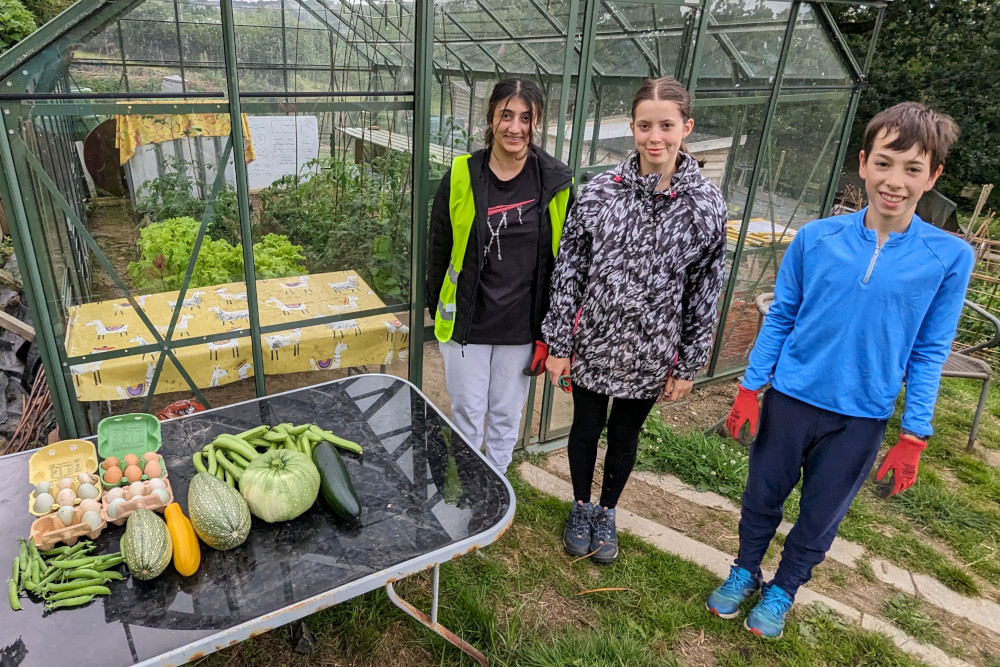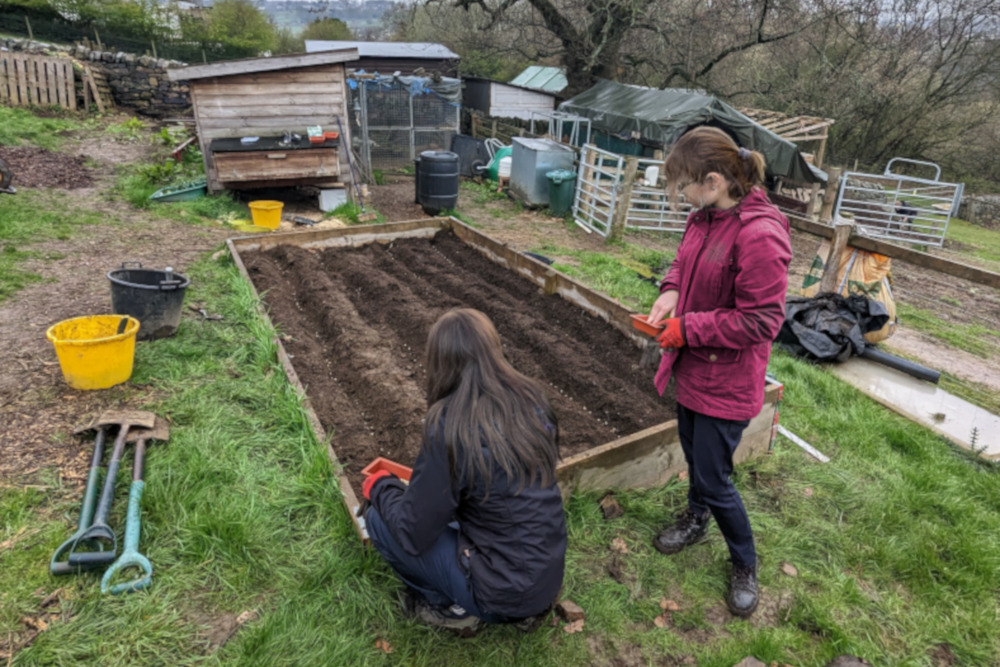Placements at Holly Hagg
*SPRING 2026 – WE ARE CURRENTLY FULL FOR PLACEMENTS ON SATURDAYS* Please try again later in the year. Placements give volunteers a more structured way to get involved with our community farm. They are ideal for learners who want to develop skills in permaculture, organic food growing, animal care, and land management. Placements are popular and spaces are limited, so we cannot offer them on a first come, first served basis. We give priority to people who are most likely to benefit and are a good fit with our ethos and current projects.
Who placements are for
- All unaccompanied under-18s (age 14–17).
- For ages 16+, you don’t need to come through a school or organisation – you can apply directly, but we will enrol you on our own placement.
- This helps us manage numbers, health & safety, and safeguarding.
- Young people on volunteering and work experience schemes (e.g., Duke of Edinburgh from 14+, school work experience from 14+).
- College or university student placements (animal care, ecology, permaculture, horticulture, conservation, etc.).
- Adults retraining or gaining new skills in permaculture, organic growing, or community farming.
- Supported placements for people with additional needs who are on or applying for a related learning course, with their own support worker, teacher, or carer present.
What placements involve
- Permaculture and gardening: planting, weeding, watering, harvesting, maintaining beds, composting and creating veg protection.
- Animal care: feeding, mucking out, basic welfare routines.
- Farm upkeep: moving materials and animal feed, maintaining paths, practical outdoor tasks.
- Opportunities to learn about permaculture principles and running a smallholding.
How placements run
- Placements are agreed for a fixed time period (e.g. a term, a set number of weeks, or a course duration).
- This ensures more people can benefit, and helps us manage capacity.
- You do not need to attend every week – but we expect you to let us know when you will and won’t be attending.
- At the end of a placement, opportunities to continue may be offered at our discretion, but cannot be guaranteed.
Support and independence
- All volunteers must be able to follow instructions, work safely and work with a reasonable level of independence.
- We are not able to provide one-to-one support or supervision.
- SEN placements are only possible where the volunteer attends or is preparing to apply to a recognised learning course and has appropriate support organised.
- In practice, we can manage no more than one or two supported placements for people with additional needs at a time, so this route is often at full capacity.
Accessibility & the work involved
- Our farm is on a steep hillside with rocky and muddy ground.
- Tasks are physical and outdoors in all weathers: e.g., mucking out, barrowing manure, digging vegetable beds or moving hay bales and feed sacks. We only have few light tasks each week.
- It is suggested (but not essential) that volunteers are capable of at least barrowing medium to light loads on a hillside, carrying a bucket of water and/or digging with a spade or trowel.
Time commitment
- We are a small, volunteer-led farm and cannot offer full-day, 9–5 placements.
- Our regular volunteer sessions run on:
- Wednesdays 2–4pm
- Saturdays 2–4pm
- We sometimes have opportunities on Sundays, and occasionally on Wednesday mornings, Tuesdays or Fridays (usually for group work).
- Placement hours therefore need to fit within these times.
How to Apply
- If you think you are interested please read about what to expect and think carefully about whether it seems like the right fit for you, then:
- Email us directly at info@hollyhagg.org.uk (we need to hear from the volunteer themselves, not just their parent or carer).
- Let us know your age, a bit about yourself, why you want to volunteer and what you are hoping to gain from the experience.
- We’ll confirm if and when a placement is possible and send you our online Placements Form.
- Under-18s: a parent/guardian must also complete and sign our paper consent form, to be brought on the first day.




